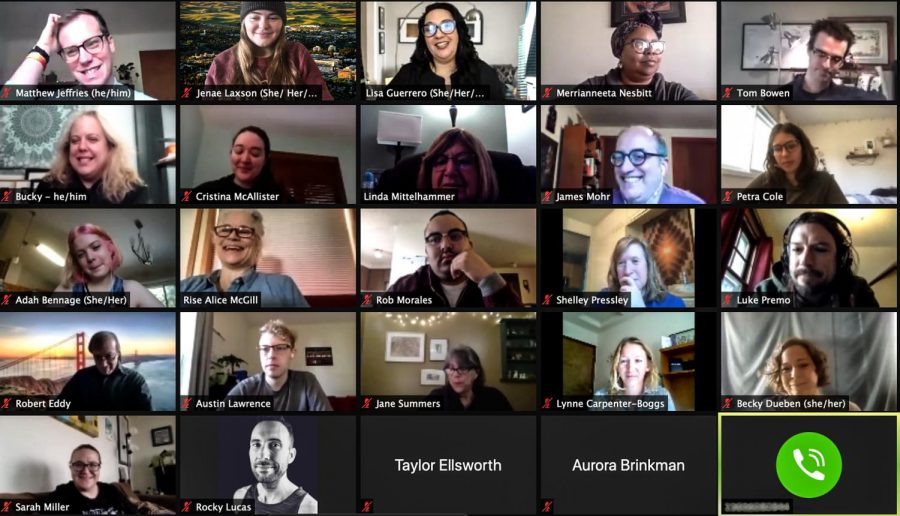WSU resource center hosts workshop on systemic racism, privilege
It is not the responsibility of oppressed people to educate the oppressors, event speaker says
“Racism is a problem for white folks to fix,” said Lisa Guerrero, WSU professor of comparative ethnic studies and American studies and culture. “The people who hold the power have to change the problem.”
October 19, 2020
WSU’s Gender Identity/Expression and Sexual Orientation Resource Center held an event on Saturday to discuss systemic racism and the benefits of correcting behavior rather than labeling someone as racist or homophobic.
Racism is systemic, said Lisa Guerrero, WSU professor of comparative ethnic studies and American studies and culture. Some people believe racism will go away once all racist people have died, but this is not true.
Some students of color who have not experienced systemic racism do not think it exists, she said.
“Just because it hasn’t happened to you doesn’t mean it doesn’t exist,” Guerrero said.
If someone does not think about what it is like to be a woman in society, it means they have male privilege. If someone does not think about holding their partner’s hand in public, it means they have heterosexual privilege, she said.
“If you do not think about something on a daily basis, that means you have privilege,” Guerrero said. “This is a central characteristic of privilege.”
Another form of privilege is having access to protests and marches, she said. There are people who cannot protest or march because of class-based issues or limited access to public spaces.
“The mother who has to work three jobs, who would really benefit from the Me Too Movement, is never going to make it to a march,” Guerrero said.
It is important to not call someone racist or homophobic, she said. Instead, tell them what they said is racist or homophobic.
The laws need to change and Black people cannot change the law, Guerrero said.
A common misconception about racism is whose problem it is, she said.
“Racism is a problem for white folks to fix,” she said. “The people who hold the power have to change the problem.”
There has been a lot of talk about LGBTQ+ people being erased in the Black Lives Matter movement, she said. This is ironic because four LGBTQ+ women started Black Lives Matter.
If everyone is not being fought for, then marginalization will continue to be reproduced, she said.
There is also the problem of colorblind racism, which is when someone says they do not see color, Guerrero said. That is a lie because people do see color unless they are literally colorblind, she said.
One component of colorblind racism is microaggressions. Microaggressions can be unintentional or intentional, and they are based on someone’s identity, she said.
An example of a microaggression can be asking someone where they are from is, but really meaning what ethnicity they are, she said.
Taylor Ellsworth, health education coordinator for Cougar Health Services, said someone cannot hold power without oppression. People in power must lose that power, she said.
If this were to happen they would be losing the power over someone else’s life, Guerrero said. This must be done because everyone should have the right to determine their own life.
“The institution of slavery might be over,” Guerrero said. “[But] the systems that it is built on still exist, and they have just morphed.”
People still benefit from these systems today, she said. White people had a 400-year head start on Black people for accumulating wealth.
“Middle-class, white American families have 12 times the wealth as middle class Black American families,” she said.
Universities try to increase numeric diversity, she said. Diverse people are brought in to make everyone look better, but this is not inclusivity, she said. This does not create an inclusive experience for minorities or a diverse experience for majorities, she said.
Being an ally is not an improvement project for white people, Guerrero said. Black people and other marginalized groups are not responsible for educating the majority.
“People need to go get their people and educate them,” she said.











